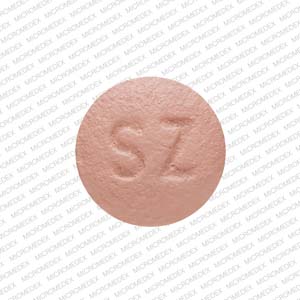Loryna Interactions
There are 597 drugs known to interact with Loryna (drospirenone/ethinyl estradiol), along with 19 disease interactions, and 6 alcohol/food interactions. Of the total drug interactions, 94 are major, 457 are moderate, and 46 are minor.
- View all 597 medications that may interact with Loryna
- View Loryna alcohol/food interactions (6)
- View Loryna disease interactions (19)
Most frequently checked interactions
View interaction reports for Loryna (drospirenone / ethinyl estradiol) and the medicines listed below.
- Abilify (aripiprazole)
- Adderall (amphetamine / dextroamphetamine)
- Adderall XR (amphetamine / dextroamphetamine)
- albuterol
- bupropion
- buspirone
- doxycycline
- fluoxetine
- gabapentin
- hydroxyzine
- ibuprofen
- lamotrigine
- levothyroxine
- Lexapro (escitalopram)
- melatonin
- metformin
- montelukast
- omeprazole
- ondansetron
- prednisone
- Prozac (fluoxetine)
- sertraline
- spironolactone
- trazodone
- Vitamin B12 (cyanocobalamin)
- Vitamin D3 (cholecalciferol)
- Vyvanse (lisdexamfetamine)
- Xanax (alprazolam)
- Zoloft (sertraline)
- Zyrtec (cetirizine)
Loryna alcohol/food interactions
There are 6 alcohol/food interactions with Loryna (drospirenone / ethinyl estradiol).
Loryna disease interactions
There are 19 disease interactions with Loryna (drospirenone / ethinyl estradiol) which include:
- smoking
- hyperkalemia
- abnormal vaginal bleeding
- carcinomas (estrogenic)
- hypercalcemia in breast cancer
- hypertension
- thromboembolism/cardiovascular
- hepatic neoplasms
- angioedema
- gallbladder disease
- hypercalcemia
- hyperlipidemia
- liver disease
- melasma
- depression
- fluid retention
- glucose intolerance
- retinal thrombosis
- thyroid function tests
More about Loryna (drospirenone / ethinyl estradiol)
- Loryna consumer information
- Compare alternatives
- Reviews (213)
- Drug images
- Side effects
- Dosage information
- During pregnancy
- Drug class: contraceptives
Related treatment guides
Drug Interaction Classification
| Highly clinically significant. Avoid combinations; the risk of the interaction outweighs the benefit. | |
| Moderately clinically significant. Usually avoid combinations; use it only under special circumstances. | |
| Minimally clinically significant. Minimize risk; assess risk and consider an alternative drug, take steps to circumvent the interaction risk and/or institute a monitoring plan. | |
| No interaction information available. |
See also:
Further information
Always consult your healthcare provider to ensure the information displayed on this page applies to your personal circumstances.


